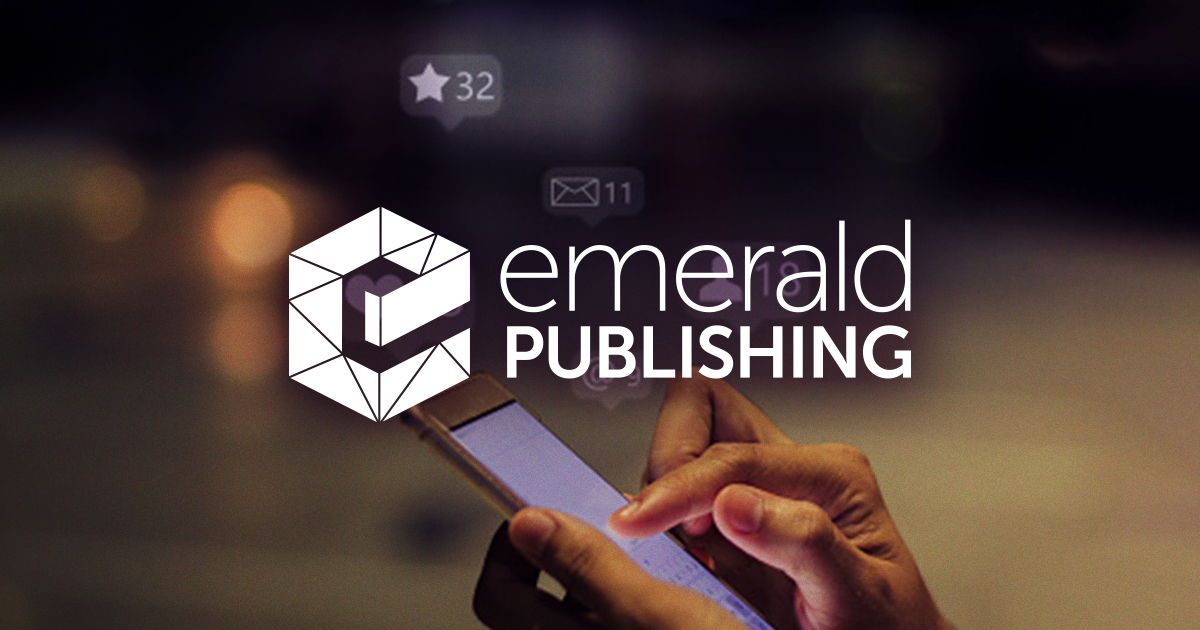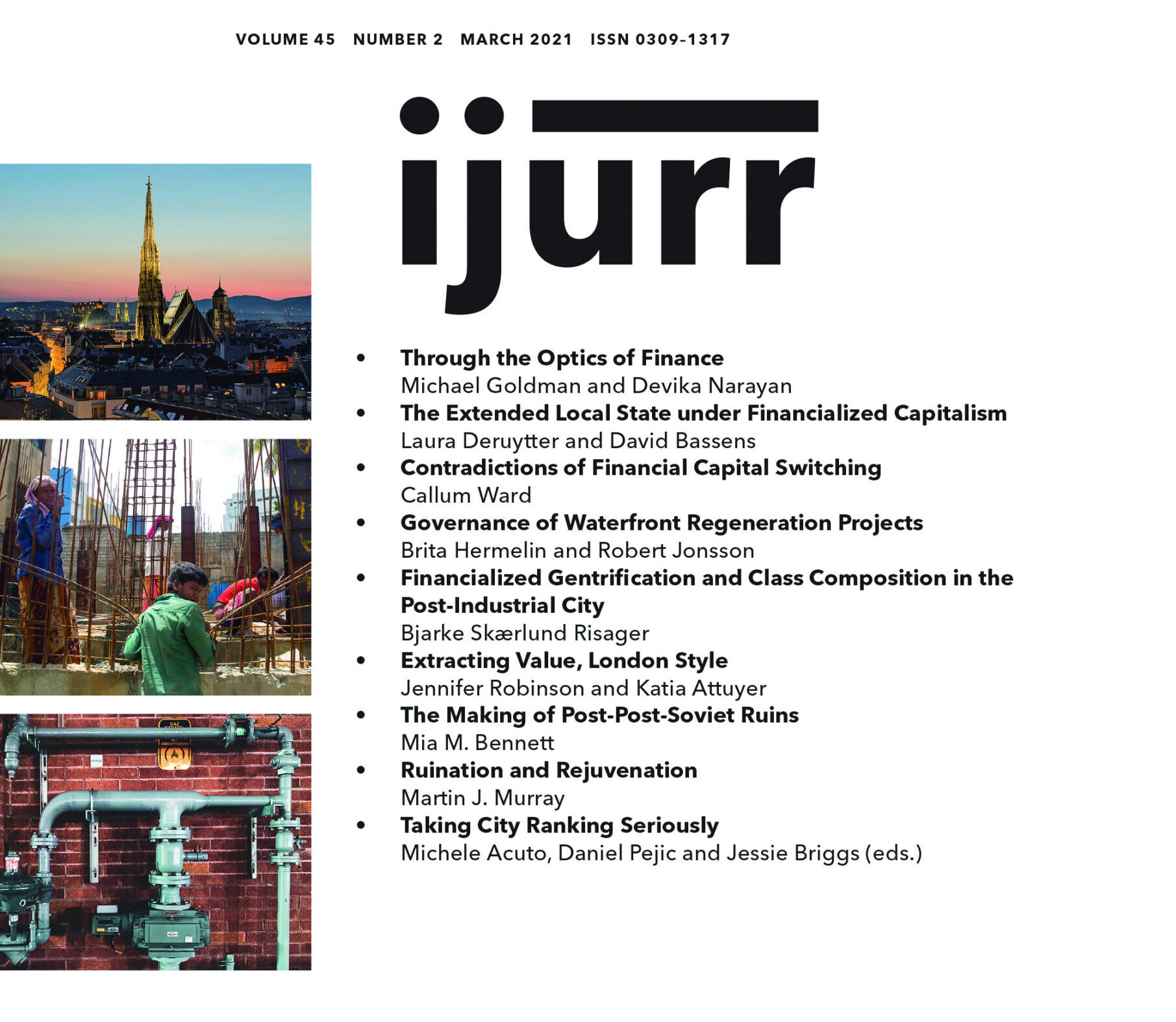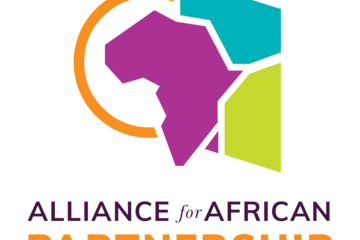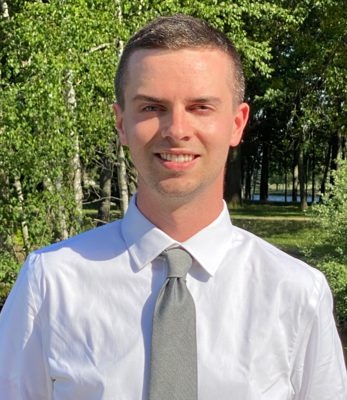Browse
Other
No Preview Available
Applications open for National Youth Service Programme 2025 (South Africa)
Deadline: Jan 31, 2025
Donor: South African Agency for Science and Technology Advancement
Grant Type: Events
Grant Size: Not Available
Countries/Regions: South Africa
Area: Career Development, Science, Technology, Youth & Adolescents
Applicants can now submit their applications for the South African Agency for Science and Technology Advancement’s National Youth Service Programme.
For more information, visit https://www.saasta.ac.za/programmes/nurturing-talent/
Premium Link: https://grants.fundsforngospremium.com/opportunity/op/applications-open-for-national-youth-service-programme-2025-south-africa
Read more

By: Baboki Gaolaolwe-Major
Due Date: Jan, 31, 2025
Science, Technology an...
+1
Leave a comment
No Preview Available
CFAs: King Center's Predoctoral Research Fellows Program
Deadline: Jan 05, 2025
Donor: Stanford King Center on Global Development
Grant Type: Fellowship
Area: Education, Career Development, Research
The King Center's Predoctoral Research Fellows Program is a full-time, two-year postbaccalaureate program designed to prepare individuals for careers in academic research focused on issues related to global development.
For more information, visit https://kingcenter.stanford.edu/opportunities/prospective-predoctoral-research-fellows
Premium Link: https://grants.fundsforngospremium.com/opportunity/op/cfas-predoctoral-research-fellows-program
Read more

By: Baboki Gaolaolwe-Major
Due Date: Jan, 5, 2025
Education
+1
Leave a comment

No Preview Available
CFAs: Emerald/CEEMAN Case Writing Competition 2025
Area: Economic Development, Research
The Emerald Publishing and The International Association for Management Development in Dynamic Societies (CEEMAN) welcome high-quality teaching cases to this joint case writing competition.
For more information, visit https://www.emeraldgrouppublishing.com/publish-with-us/publish-a-teaching-case-study/case-writing-competitions/emeraldceeman-case-writing
Premium Link: https://grants.fundsforngospremium.com/opportunity/op/cfas-emeraldceeman-case-writing-competition-2025
Deadline: Feb 28, 2025
Donor: Emerald Publishing
Grant Type: Events
Grant Size: $1000 to $10,000
Read more

By: Baboki Gaolaolwe-Major
Due Date: Feb, 28, 2025
Other
Leave a comment

No Preview Available
Entries open for Space4Youth Competition 2025
Area: Science, Technology, Youth & Adolescents
The United Nations Office for Outer Space Affairs (UNOOSA) and the Space Generation Advisory Council (SGAC) are thrilled to announce the sixth edition of the Space4Youth Competition.
For more information, visit https://spacegeneration.org/space4youth-competition-2025
Premium Link: https://grants.fundsforngospremium.com/opportunity/op/entries-open-for-space4youth-competition-2025
Read more

By: Baboki Gaolaolwe-Major
Due Date: Dec, 8, 2024
Science, Technology an...
+1
Leave a comment

No Preview Available
CFAs: IJURR Foundation Majority Regions Workshops
Deadline: Jan 31, 2025
Donor: IJURR Foundation
Grant Type: Events
Grant Size: $1000 to $10,000
Countries/Regions: Afghanistan, Angola, Bangladesh, Benin, Bhutan, Bolivia, Burkina Faso, Burundi, Cambodia, Cameroon, Cape Verde, Central African Republic, Chad, Comoros, Congo (Brazzaville), Congo DR, Cote DIvoire (Ivory Coast), Djibouti, Egypt, Eritrea, Ethiopia, Gambia, Ghana, Guinea, Guinea-Bissau, Haiti, Honduras, India, Jordan, Kenya, Kiribati, North Korea, Kyrgyzstan, Laos, Lebanon, Lesotho, Liberia, Madagascar, Malawi, Mali, Mauritania, Micronesia Federated States Of, Morocco, Mozambique, Burma(Myanmar), Nepal, Nicaragua, Niger, Nigeria, Pakistan, Palestinian Territories, Papua New Guinea, Philippines, Rwanda, Samoa, Sao Tome And Principe, Senegal, Sierra Leone, Solomon Islands, Somalia, Sri Lanka, Sudan, Swaziland, Syria, Tajikistan, Tanzania, East Timor (Timor-Leste), Togo, Tunisia, Uganda, Uzbekistan, Vanuatu, Viet Nam, Yemen, Zambia, Zimbabwe, South Sudan
Area: Community Betterment, Community Development, Education, Literacy, Youth & Adolescents
The IJURR Foundation is pleased to announce its call for Majority Regions Workshops.
For more information, visit https://www.ijurr.org/ijurr-foundation/grants/ijurr-foundation-majority-regions-workshops/
Premium Link: https://grants.fundsforngospremium.com/opportunity/op/cfas-ijurr-foundation-majority-regions-workshops
Read more

By: Baboki Gaolaolwe-Major
Due Date: Jan, 31, 2025
Youth empowerment
+1
Leave a comment
No Preview Available
Leadership and Advocacy for Women in Africa Fellowship Program
Deadline: Jan 17, 2025
Donor: Georgetown Law
Grant Type: Fellowship
Grant Size: $10,000 to $100,000
Countries/Regions: Algeria, Angola, Benin, Botswana, Burkina Faso, Burundi, Cameroon, Cape Verde, Central African Republic, Chad, Comoros, Congo (Brazzaville), Congo DR, Cote DIvoire (Ivory Coast), Djibouti, Egypt, Equatorial Guinea, Eritrea, Ethiopia, Gabon, Gambia, Ghana, Guinea, Guinea-Bissau, Kenya, Lesotho, Liberia, Libya, Madagascar, Malawi, Mali, Mauritania, Mauritius, Mayotte, Morocco, Mozambique, Namibia, Niger, Nigeria, Reunion, Rwanda, Saint Helena, Sao Tome And Principe, Senegal, Seychelles, Sierra Leone, Somalia, South Africa, Sudan, Swaziland, Tanzania, Togo, Tunisia, Uganda, Western Sahara, Zambia, Zimbabwe, South Sudan
Area: Leadership, Women & Gender
The Georgetown Law organization awaits entries for its Leadership and Advocacy for Women in Africa (LAWA) Fellowship Program.
For more information, visit https://www.law.georgetown.edu/wlppfp/lawa-fellowship-program/
Premium Link: https://grants.fundsforngospremium.com/opportunity/op/Leadership-and-Advocacy-for-Women-in-Africa-Fellowship-Program
Read more

By: Baboki Gaolaolwe-Major
Due Date: Jan, 17, 2025
Other
Leave a comment
No Preview Available
Grants for advance Innovative Solutions for Maternal, Newborn and Child Health
Deadline: Jan 31, 2025
Donor: Grand Challenges Nigeria
Grant Type: Grant
Grant Size: $10,000 to $100,000
Countries/Regions: Nigeria
Area: Children, Family, Family Health, Health, Innovation
The Grand Challenges Nigeria is inviting grant applications for Maternal & Child Health to identify and support innovative, scalable ideas and interventions that leverage local contexts to address critical challenges in maternal, newborn, and child health, ultimately prioritizing human health and development.
For more information, visit https://scienceforafrica.foundation/media-center/grand-challenges-nigeria-launch-funding-call-maternal-child-health
Premium Link: https://grants.fundsforngospremium.com/opportunity/op/grand-challenges-nigeria-funding-call-for-maternal-child-health
Read more

By: Baboki Gaolaolwe-Major
Due Date: Jan, 31, 2025
Science, Technology an...
+1
Leave a comment
No Preview Available
Join the FINISH Mondial's Annual Sanitation Technology Hackathon 5
Deadline: Feb 28, 2025
Donor: FINISH Mondial
Grant Type: Events
Grant Size: $1000 to $10,000
Countries/Regions: Bangladesh, Ethiopia, India, Kenya, Tanzania, Uganda
Area: Community Development, Rural Development, Urban Development, Innovation
Calling all innovators! Register now for Sanitation Technology Hackathon 5 and make a sustainable impact by submitting your innovative solutions for urban slums.
For more information, visit https://finishmondial.org/calling-all-innovators-join-our-5th-santech-hackathon/
Premium Link: https://grants.fundsforngospremium.com/opportunity/op/Join-the-FINISH-Mondial's-Annual-Sanitation-Technology-Hackathon-5
Read more

By: Baboki Gaolaolwe-Major
Due Date: Feb, 28, 2025
Other
Leave a comment
No Preview Available
Call for Applications: Women in Innovation Fund (WiNFUND)
Deadline: Dec 13, 2024
Donor: Health Innovation Exchange
Grant Type: Grant
Grant Size: Not Available
Countries/Regions: Egypt, Ghana, Kenya, Nigeria, South Africa, Tanzania, Uganda
Area: Business & Industry, Entrepreneurship, Climate Change, Health, Health care, Innovation, Women & Gender
The Women in Innovation Fund (WiNFUND), co-founded by Reckitt, HIEx (Health Innovation Exchange), and the Kofi Annan Foundation, is excited to announce the launch of its new cycle, inviting female health innovators across Africa to apply.
For more information, visit https://hiex.ch/winfund-call-2425
Premium Link: https://grants.fundsforngospremium.com/opportunity/op/call-for-applications-women-in-innovation-fund-winfund
Read more

By: Baboki Gaolaolwe-Major
Due Date: Dec, 13, 2024
Water, energy, and the...
+2
Leave a comment
No Preview Available
RFPs: Feminist Global Development and Foreign Policy Fellowship Program
Deadline: Dec 02, 2024
Donor: Heinrich Böll Foundation
Grant Type: Fellowship
Grant Size: Not Available
Countries/Regions: Afghanistan, Algeria, Angola, Argentina, Armenia, Azerbaijan, Bahrain, Bangladesh, Belarus, Benin, Bhutan, Bolivia, Botswana, Brazil, Brunei, Bulgaria, Burkina Faso, Burundi, Cambodia, Cameroon, Cape Verde, Central African Republic, Chad, Chile, China, Colombia, Comoros, Congo (Brazzaville), Congo DR, Costa Rica, Cote DIvoire (Ivory Coast), Cuba, Czech Republic, Djibouti, Dominican Republic, Ecuador, Egypt, El Salvador, Equatorial Guinea, Eritrea, Ethiopia, Gabon, Gambia, Georgia, Ghana, Guatemala, Guinea, Guinea-Bissau, Honduras, Hungary, India, Indonesia, Iran, Iraq, Israel, Japan, Jordan, Kazakhstan, Kenya, South Korea, North Korea, Kuwait, Kyrgyzstan, Laos, Lebanon, Lesotho, Liberia, Libya, Madagascar, Malawi, Malaysia, Maldives, Mali, Mauritania, Mauritius, Mayotte, Mexico, Moldova Republic Of, Mongolia, Morocco, Mozambique, Burma(Myanmar), Namibia, Nepal, Nicaragua, Niger, Nigeria, Oman, Pakistan, Palestinian Territories, Panama, Paraguay, Peru, Philippines, Poland, Puerto Rico, Qatar, Reunion, Romania, Russia, Rwanda, Saint Helena, Sao Tome And Principe, Saudi Arabia, Senegal, Seychelles, Sierra Leone, Singapore, Slovak Republic, Somalia, South Africa, Sri Lanka, Sudan, Swaziland, Syria, Tajikistan, Tanzania, Thailand, East Timor (Timor-Leste), Togo, Tunisia, Turkey, Turkmenistan, Uganda, Ukraine, United Arab Emirates, Uruguay, Uzbekistan, Venezuela, Viet Nam, Western Sahara, Yemen, Zambia, Zimbabwe, South Sudan
Area: Community Development, Politics, Leadership, Research, Tourism & Travel, Gender Equality, Women & Gender
The Heinrich Böll Foundation’s, Washington DC Office is pleased to announce the third iteration of the Feminist Foreign and Development Policy Fellowship.
For more information, visit https://us.boell.org/en/2024/11/15/feminist-global-development-and-foreign-policy-fellowship-2025-csw-69
Premium Link: https://grants.fundsforngospremium.com/opportunity/op/rfps-feminist-global-development-and-foreign-policy-fellowship-program
Read more

By: Baboki Gaolaolwe-Major
Due Date: Dec, 2, 2024
Youth empowerment
+2
Leave a comment

No Preview Available
Applications open for Motorola Solutions Foundation Grant Program
Deadline: Jan 23, 2025
Donor: Motorola Solutions Foundation
Grant Type: Grant
Grant Size: $10,000 to $100,000
Countries/Regions: All Countries
Area: Disability, Information Technology, Leadership, LGBTQ, Women & Gender
Applications are now open for the Motorola Solutions Foundation Grant Program.
For more information, visit https://www.motorolasolutions.com/en_us/about/motorola-solutions-foundation/annual-grants.html
Premium Link: https://grants.fundsforngospremium.com/opportunity/op/applications-open-for-motorola-solutions-foundation-grant-program
Read more

By: Baboki Gaolaolwe-Major
Due Date: Jan, 23, 2025
Science, Technology an...
+1
Leave a comment

African Futures Cohort 5 - Call for Scholars
The Alliance for African Partnership (AAP) is seeking applicants for the fifth cohort of the AAP African Futures Research Leadership Program. This competitive visiting scholar program supports early career researchers from the AAP consortium to work for one year under the mentorship of faculty members from MSU and their home institution, focusing on building skills in research for impact, writing scholarly and/or policy publications, disseminating of research results, and developing grant proposals for external support. Scholars will also participate in a structured professional development program while building bridges and lasting connections with MSU contacts and across their cohort.
The main objective of the African Futures program is to strengthen the capacity of a cadre of African researchers to return to their home institutions and become scientific leaders in their community, establish long-term partnerships with MSU faculty, co-create innovative solutions to Africa’s challenges, and in turn become trainers of the next generation of researchers. This program aims to address the gender gap in Africa, where only 30% of researchers are women, so scholars selected for the program will be women, or men who can demonstrate they are committed to support efforts towards gender equity in higher education institutions in Africa. The research areas that the scholars will engage in during the program should be aligned to AAP's research priority areas.
The AAP Management Team requests applications from early career researchers to participate in the next cohort, with work to begin virtually in February 2025. Scholars will spend September – December 2025 at MSU for the in-person portion of the program, followed by another period of virtual collaboration, ending in early 2026. The scholar and mentor team will receive a small grant for research and professional development activities including conference attendance and publication. Scholars will also receive a stipend during their time at MSU, visa application support, and round-trip travel from their home institution.
Potential Research Areas
Selected scholars will work in one of AAP’s seven priority areas:
Agri-food systems
Water, Energy, and Environment
Culture and Society
Youth Empowerment
Education
Health and Nutrition
Science, Technology, and Innovation
Selected scholars will be paired with an MSU mentor and commit to working with the MSU mentor and the home institution mentor for the duration of the program.
Program Benefits
Professional development activities – AAP will offer structured professional development workshops centered on topics such as building equitable partnerships, academic time management, proposal development and budgeting, research communication, etc. to establish professional trajectories, to build research, writing, and publishing skills, and to support scholars to move through various stages of review, promotion, and growth.
Leadership activities – this will center on a research leadership retreat to expose scholars to the key competencies of research leaders, the work that research leaders engage in, personal reflection on their characteristics and career goals to help determine the pathway to advancement to research leadership.
Collaboration networks – the early career researcher will be co-mentored by an MSU faculty member and a faculty member from their home institution. Mentors will have the opportunity to visit their counterpart for one week during the duration of the program. The scholar will also gain access to AAP’s broad network of researchers at MSU, across Africa, and beyond. Proposed activities should ultimately lead to potential long-term collaborations between MSU and the partner institution.
Expected Outcomes
Each scholar and mentors are expected to produce the following outputs, at minimum, by the end of the program:
Submission or evidence of publication of one to three joint manuscripts
At least one grant proposal application
At least one conference presentation
Collaborations with mentors are meant to be long-term and continue after the end of the program. Scholars are encouraged to network with MSU faculty beyond their mentor while at MSU. Scholars are expected to submit regular progress reports to AAP and their home institution focal point. Failure to meet program and mentor expectations can result in early dismissal.
Eligibility
Citizen of an African country
Completion of a PhD degree within the last 10 years
Employed as an Academic Staff member at one of the AAP African consortium universities including Egerton University, Makerere University, University of Dar es Salaam, Lilongwe University of Agriculture and Natural Resources, University of Botswana, University of Nigeria, Nsukka, University Cheikh Anta Diop, University of Arts and Humanities, Bamako, United States International University-Africa, and University of Pretoria
Have documented approval of leave or sabbatical to participate in the program for the in-person period
Have a mentor at their home institution that will serve as a collaborator and mentor
Research must be in one of the AAP priority areas
Applicants may only submit one proposal to AAP in this round of funding. Prior scholars are not eligible to apply.
Application Requirements
Applicants should provide the following documents as part of their application package:
An up-to-date curriculum vitae (CV) that provides a chronological review of their professional accomplishments
A letter of interest that demonstrates how their research interest and experience is aligned to the AAP research priority area and how they plan to implement long-term sustainable partnership (1 pages)
(for male applicants) include how they have supported efforts towards gender equity in higher education institutions in Africa
Names of potential mentors at MSU (applicants should browse relevant MSU department’s website to identify up to three faculty that are aligned with their research interests. Applicants should not contact MSU faculty directly - AAP will reach out on the applicant’s behalf)
Two publications in refereed journals related to their research area
Two professional references that detail the relationship to the applicant and provide specific examples of their assessment of the expertise of the applicant’s research area
A letter from the mentor at their home institution indicating willingness to serve as a collaborator during the program, travel to MSU for one week of collaboration discussions, and mentor the early career researcher when they return to their home institution (1 page)
A written endorsement from the applicants’ Head of Department approving leave (1 page)
A letter of support from the AAP Focal Point for the scholar’s application (1 page)
Selection Criteria:
Professional merit, scientific ability, potential career impact and future collaboration goals with MSU faculty (based on CV, letter of interest, publications, Head of dept and home mentor letters, and two reference letters)
Assurance and availability of resources from the home institution for a designated, funded position for the early career researcher upon completion of their fellowship (expressed in letter from head of Dept at the home institution)
Commitment to return to their home country following completion of training (expressed in a letter of interest)
The selection committee will ensure the best match of outstanding candidates and MSU mentors
Additional selection factors may include diversity in scientific research areas and geographic origin
Applications are due on August 18, 2024
Apply: https://msu.co1.qualtrics.com/jfe/form/SV_a60s40TOPXGO5sq
Additional program dates:
Program start date (virtual): February 2025
In-person program: Sept - Dec 2025
Program end date: February 2026
Questions
Please contact José Jackson-Malete at jacks184@msu.edu or +1 517-884-8587 with any questions.
Read more

By: Justin Rabineau
Due Date: Aug, 18, 2024
Agri-food systems
+6

Leave a comment